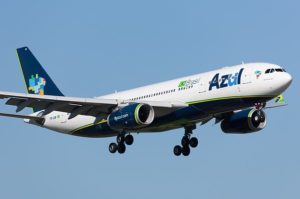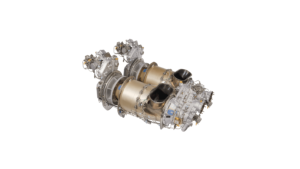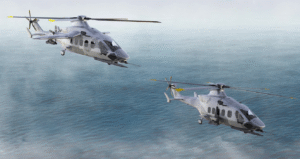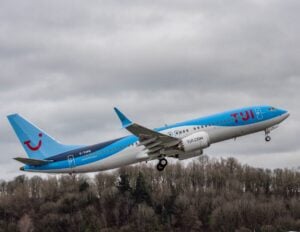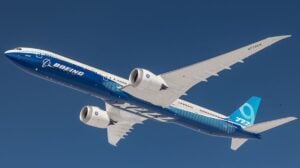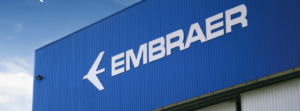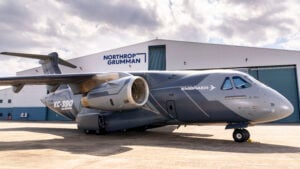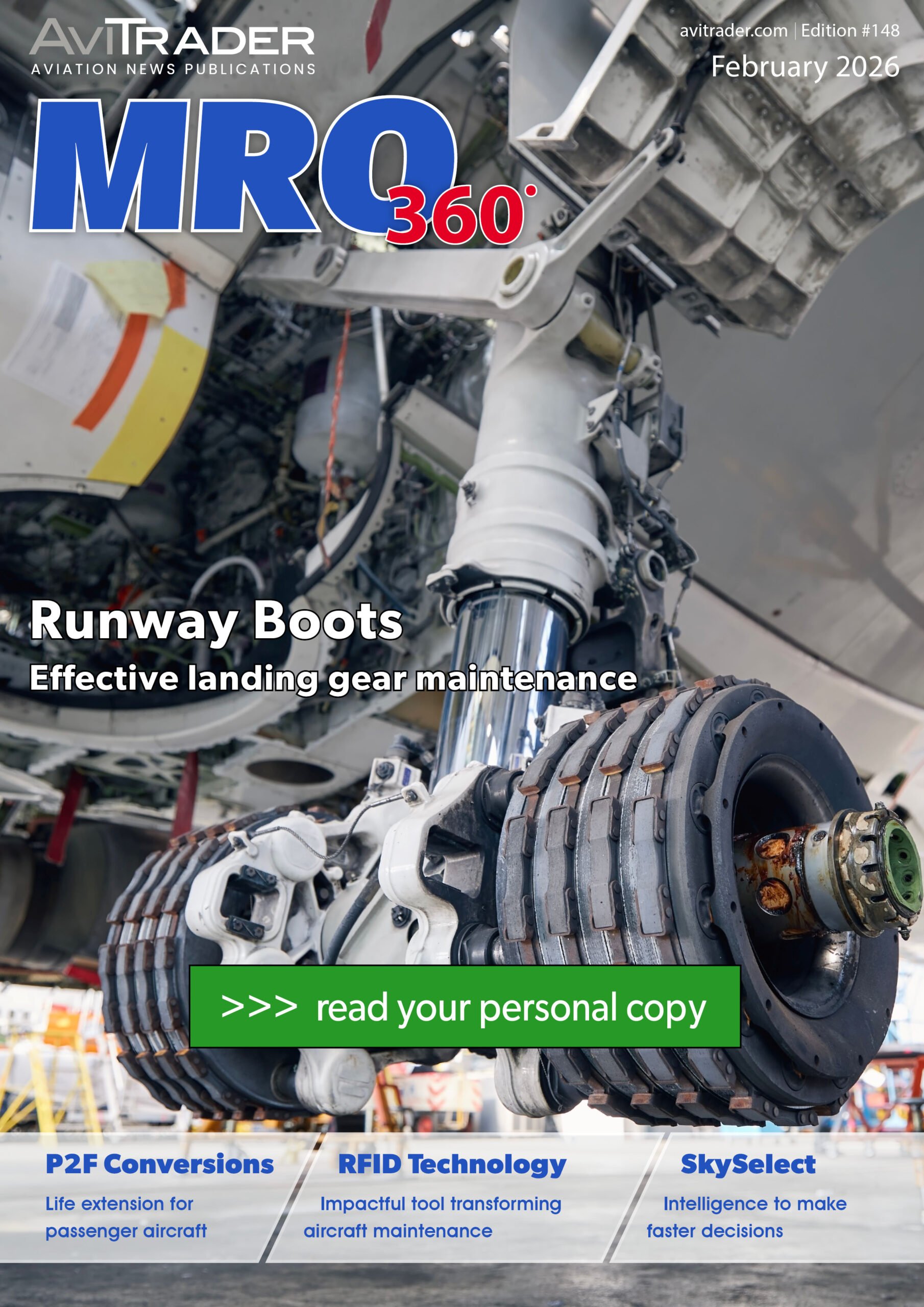By David Dundas
One of the greatest challenges facing any MRO operator is inventory management. In terms of size and scale, few maintenance sectors of any business will ever have the need to maintain an inventory with so many parts and, more to the point, so many expensive parts. In the aerospace industry where commercial aircraft downtime is to be avoided at all costs, those carriers who turn to MROs to help them keep their planes in the sky are passing a baton with which comes enormous responsibility. MRO contracts are not just worth a lot of money, but they guarantee jobs for many hundreds of employees, and if an MRO business fails to meet its client’s expectations, the contract can either be cancelled or not renewed. Those expectations come not only in the form of 100% reliability, but also cost effectiveness. In other words, to be awarded or retain an MRO contract, not only must you be able to provide the services required, but you also have to do so at an extremely attractive price.
The result for MROs is finding that perfect balance where the service offered is pretty well guaranteed 100% reliable, yet the price is also extremely attractive. Consequently, MROs are always looking for ways not only to improve technical operations, but also reduce operating costs. Consequently, inventory has always been in the crosshairs, and today how that inventory is managed and provided can be key to the survival of any MRO. So, the burning question is: Is it better to maintain your own inventory in house, or outsource parts of it, especially lower-cost, high turnover expendable and consumable materials? To get the answer, we turned to three leading MRO providers to get their slant on this challenging topic.
Why outsourcing expendables and consumables is becoming a trend in the MRO industry
The outsourcing of expendables and consumables in the MRO industry would appear to be gaining traction through its ability to streamline operations and reduce costs. Airlines and MRO providers are under increasing and constant pressure to enhance efficiency and focus on core competencies. By partnering with specialized suppliers, they can offload the complexity of managing a vast inventory of low-cost, high-turnover items while benefitting from the expertise and infrastructure of dedicated providers. This approach aligns seems to align well with the industry’s shift toward lean inventory practices and just-in-time supply models, which outsourcing can support effectively. According to Daniel Tautges, Sr. Vice President Sales and Marketing, Component Control: “Component Control is seeing a trend with our consumable and expendable distributors in managing lower cost high turn-over materials in a just-in-time basis, leveraging remote inventory management. Remote inventory management allows our Distribution customers to forward stock materials at their customers facilities in a 2-bin, Kanban, process that allows end-users to pull stock as needed but not incur the cost of warehousing the materials. The distributor supplier is responsible for maintaining the stock and invoices their customer when the material is used. This process frees up cash flow, ensures material supply, and effectively outsources the material management of expendables and consumables. Quantum ERP facilitates the entire outsourcing process, leveraging the Quantum RMI module, invoicing, and integrated accounting.
At SkySelect, Inc., company CEO and Co-founder Erkki Brakmann sees the situation very clearly when he points out that “Airlines and MROs are not in the inventory management business but in the hospitality/customer service business.” He than adds that “… it makes sense to focus on the core to be the best at it. Expendables and consumables can make up 90-95% of the total purchasing volume but only 25-50% of the spend. So far, the only way to deal with it has been by employing people, and then the question is, where do we employ these people? Doing it in-house requires working capital, it can be cheaper, and you have better control, but it comes with a lot of overhead and processes to manage. Outsourcing is usually more expensive, but it leaves you free to focus on the core business.” He then goes on to point out that with the development of AI, this introduces a third option. “AI can intelligently automate the procurement of expendables and consumables to a large degree. This not only keeps the process in-house and under control and reduces overhead but also unlocks a strong savings potential by finding better opportunities and reducing the need for working capital,” he says.
Outsourcing expendables and consumables has become a strategic move in the MRO industry as it offers both practical and long-term advantages. Kerry Obiala, Vice President, OEM Distribution, STS Component Solutions explains further: “At STS Component Solutions, we’ve found that partnering with specialised suppliers helps reduce costs, streamlines procurement processes, and improves inventory management through just-in-time systems. This allows us to focus on delivering exceptional service while leveraging our partners’ expertise, robust supply chains, and scalability. As the industry evolves, outsourcing keeps us agile, efficient, and well-positioned to navigate a competitive and growing market.”
How does outsourcing impact cost management for airlines and MRO providers?
Here the answer is not the same for everyone, but at the end of the day, choices made are primarily cost driven. As Erkki Brakmann succinctly puts it: “By outsourcing, companies can minimise expenses related to storing and managing extensive inventories, such as tying up valuable working capital. Specialised vendors, with their economies of scale and established supplier relationships, can often secure better pricing, leveraging their proprietary technologies, such as AI, and passing these savings on to their clients.” Outsourcing expendables and consumables now appears to be an effective way for airlines and MRO providers to manage costs, optimise inventory, and enhance cash flow. This is backed up by Kerry Obiala who tells us that: “At STS Component Solutions, we’ve seen how this approach boosts efficiency, strengthens supply chain stability, and taps into supplier expertise. By offering long-term financial predictability and flexibility, outsourcing helps us support our partners while ensuring the industry remains efficient and forward-looking.”
In general terms, outsourcing significantly improves cost management by reducing the need for airlines and MRO providers to invest in large storage facilities, logistics, and procurement teams. Suppliers are often able to offer economies of scale which results in reduced unit costs for consumables and expendables. Daniel Tautges fills in the picture in more detail. “… predictable pricing models such as fixed-fee agreements or consumption-based billing allow MROs to plan budgets more effectively. These arrangements minimise inventory holding costs and reduce the risk of obsolescence, particularly for low-usage items. Component Control’s Quantum ERP provides the digital infrastructure to manage supplier to end-user material management. Typically, in consumables, fixed-price agreements are negotiated and tracked via Quantum’s Price-line capability. Further, as stock is pulled from the end-user Quantum automatically reports the consumption and demand to Quantum’s advanced purchasing capability to trigger economic reordering against the entire demand footprint. This provides the supplier with a view of all of their customers demand so that they can plan and buy in high quantities at lower prices, with committed supply. MROs and airlines get the benefit of the suppliers efficiencies.”
How does outsourcing improve or complicate inventory management and supply chain efficiency?
Outsourcing expendables and consumables clearly presents risks such as supply chain disruptions, quality concerns, cost fluctuations, and reduced flexibility. However, these challenges can be easily overcome, as Kerry Obiala explains: “To mitigate these challenges, STS Component Solutions prioritises strong contractual agreements, rigorous supplier evaluations, and continuous oversight. This proactive approach ensures we deliver reliable, cost-effective solutions while minimising risks for our partners.” Of course, outsourcing can improve inventory management by delegating replenishment and logistics to experienced third parties, which helps ensure parts are available when needed. This reduces stockouts and the associated operational delays. However, Daniel Tautges advises that caution should be exercised here, suggesting that: “… if not managed correctly, outsourcing can introduce complexities such as dependency on supplier performance, extended lead times, or integration challenges with existing inventory management systems. Companies using robust software solutions, such as Quantum Control’s aviation ERP system, can effectively mitigate these challenges by ensuring real-time data exchange, automated workflows, and comprehensive supply chain visibility.”
Erkki Brakmann sees that not only can outsourcing improve inventory management, but it can also result in greater operational efficiency and reduced overheads. He further explains: “Outsourcing eliminates the need for internal teams to handle sourcing and procurement, which reduces administrative burdens and allows teams to focus on maintaining equipment, optimizing workflows, and focusing on strategic partnerships. Reliable suppliers ensure that consumables and expendables are readily available, reducing downtime caused by stockouts. Outsourcing partners often maintain stocks of frequently used items, enabling faster replenishment and minimizing lead times.”
What are the potential risks associated with outsourcing expendables and consumables?
Here, all three of our contributors would seem to share the same concerns. For Daniel Tautges, he feels that the primary risks include: “… supply chain disruptions, quality control issues, and potential loss of direct oversight. Dependence on external suppliers can leave MROs vulnerable to delays caused by supplier shortages, geopolitical factors, or natural disasters. There’s also the risk of inconsistent quality if rigorous standards and inspections aren’t upheld. Finally, data sharing and integration gaps may result in inefficiencies or misaligned inventory levels if communication protocols are not clearly defined.” While Erkki Brakmann is quick to identify higher cost as a risk, he also adds that: “the main risk of being dependent on one party is losing the market touch and supply chain insights. For example, if one wants to optimise the planning, purchasing, or understanding of the market price of parts, a lack of data can make this very difficult.” He also adds a note of caution. “If, at one point, the airline or MRO would like to insource the process again, they’d need to start from scratch.”
Kerry Obiala also points out that expendables and consumables can come with risks like supply disruptions, quality concerns, rising costs, and reduced flexibility. Rather than leaving it there though, she advises that: “To address these challenges, STS Component Solutions focuses on creating strong contracts, carefully evaluating our suppliers, and maintaining effective oversight throughout the process. This proactive approach ensures we deliver reliable, cost-effective solutions while minimizing potential issues for our partners.”
How do MRO companies mitigate risks such as supply chain disruptions or quality control issues?
At SkySelect, Inc., Erkki Brakmann adopts a very positive approach to mitigating such risks. As he explains: “Partnering with external firms often comes with warranties, certifications, and compliance guarantees that help reduce the risks associated with low-quality materials. These partners also take on the responsibility of managing stockouts and navigating complex regulatory changes, which eases the administrative burden on procurement teams. Additionally, many outsourcing partners offer data-driven insights through AI and algorithms, enabling companies to make informed decisions, optimise resource consumption, and minimise waste.” Daniel Tautges at Component Control elaborates further on risk mitigation, advising that: “… MRO companies prioritise working with trusted, vetted suppliers with a proven track record of reliability and quality. Many utilise comprehensive ERP systems, like Quantum Control, to monitor supplier performance, enforce compliance with quality standards, and manage contingency planning. Dual-sourcing strategies and maintaining safety stock for critical items are also common practices. Additionally, clear contractual agreements and robust data-sharing protocols help address potential challenges proactively.”
Kerry Obiala sums it up in a nutshell – “At STS Component Solutions, we address risks through close collaboration with our partners. By fostering strong relationships, maintaining a strict focus on quality, and utilising advanced tracking technology, we ensure seamless operations. Additionally, we implement robust contingency plans to provide the reliability and flexibility our customers need to thrive in a fast-changing industry.”
What pricing models do suppliers typically offer, and how do they influence MRO decisions?
Clearly there cannot be a ‘one price fits all’ model here, so once again pricing models vary considerably. According to Daniel Tautges: “Common pricing models include subscription-based services, consumption-based billing, and volume discount agreements. Suppliers may also offer vendor-managed inventory (VMI) programs, where the supplier retains ownership of inventory until it’s consumed. These models influence MRO decisions by providing flexibility and predictability in costs, enabling providers to align procurement strategies with operational demands. The choice of model often depends on the scale of operations and the specific requirements of the airline or MRO provider.” Kerry Obiala points out that suppliers often offer diverse pricing models to meet various needs, including fixed pricing for budget predictability, cost-plus for transparency, and volume discounts for reduced unit costs. She then goes on to explain that: “At STS Component Solutions, we work closely with our customers to determine the best pricing model that balances cost, flexibility, and risk, ensuring they achieve maximum value while maintaining agility in a dynamic market.”
What role does data sharing between MROs and suppliers play in ensuring seamless operations?
Here Erkki Brakmann looks to a strong collaborative arrangement between the MRO and its suppliers in order to maximise the potential of advanced analytics to enhance inventory management. As he explains: “By sharing inventory data, organisations can achieve greater resource utilisation and forecasting accuracy. Additional valuable data-driven insights, such as market trends, supplier performance, and inventory optimisation opportunities, can be obtained, empowering organisations to make more informed decisions. These insights also provide strong support for contract negotiations and identify other opportunities, giving your business a competitive edge and instilling confidence in your dealings.”
Kerry Obiala is very much of the same opinion when it comes to collaboration and data sharing. She is very clear that: “Data sharing between suppliers and MROs is vital for operational efficiency. At STS Component Solutions, we use shared data to enhance demand forecasting, optimize procurement processes, and ensure consistent quality compliance. This collaborative approach enables us to deliver superior results for our customers while driving efficiency across the supply chain.” Daniel Tautges is also adamant that data sharing is critical to the success of outsourcing partnerships. As he puts it: “It enables real-time visibility into inventory levels, consumption patterns, and supplier performance, ensuring seamless coordination and timely replenishment. ERP systems like Quantum Control provide the foundation for this collaboration by offering integrated platforms where MROs and suppliers can exchange data securely and efficiently. Enhanced data sharing reduces errors, prevents delays, and fosters a more responsive supply chain.”
How is the outsourcing of expendables and consumables expected to evolve in the next decade?
Here, Daniel Tautges believes that over the next decade, the outsourcing of expendables and consumables is anticipated to become increasingly sophisticated, driven by advancements in artificial intelligence (AI) and data analytics. He explains in further detail that AI-powered tools: “will play a pivotal role in this evolution by enabling more accurate and dynamic pricing strategies. These tools analyse extensive datasets, including market trends and customer behaviours, to provide precise pricing decisions that enhance profitability and efficiency. Additionally, the integration of AI in supply chain management will facilitate predictive analytics, allowing MRO providers to anticipate demand fluctuations and optimize inventory levels accordingly. This proactive approach will reduce stockouts and overstock situations, leading to more efficient operations. Furthermore, AI-driven insights will enable suppliers and MROs to collaborate more effectively, ensuring that the supply of expendables and consumables aligns seamlessly with maintenance schedules and operational needs. As the industry continues to embrace digital transformation, the adoption of AI and advanced analytics in outsourcing strategies will be crucial for maintaining competitiveness and meeting the evolving demands of the aviation sector.”
Erkki Brakmann also points to the influence of AI on the evolution of outsourcing. He feels that: “As organisations continue to outsource various operations to concentrate on business-critical functions, this trend is likely to extend into the procurement space, particularly regarding expendables and consumables. Specifically, technology, especially AI, will be leveraged to create leaner and more efficient processes and significantly reduce organizational overhead. This will also make organizations more agile and able to adapt to changing market conditions impacting the supply chain and air travel demand.”
To end on a positive note, Kerry Obiala comments: “Looking ahead, we anticipate that outsourcing expendables and consumables will increasingly focus on automation, deeper collaboration, sustainability, and global expansion.” She goes on to explain that she sees these advancements helping the MRO industry lower costs, improve operational efficiency, and reduce environmental impact—all while fostering innovation and staying competitive in a rapidly evolving market.




